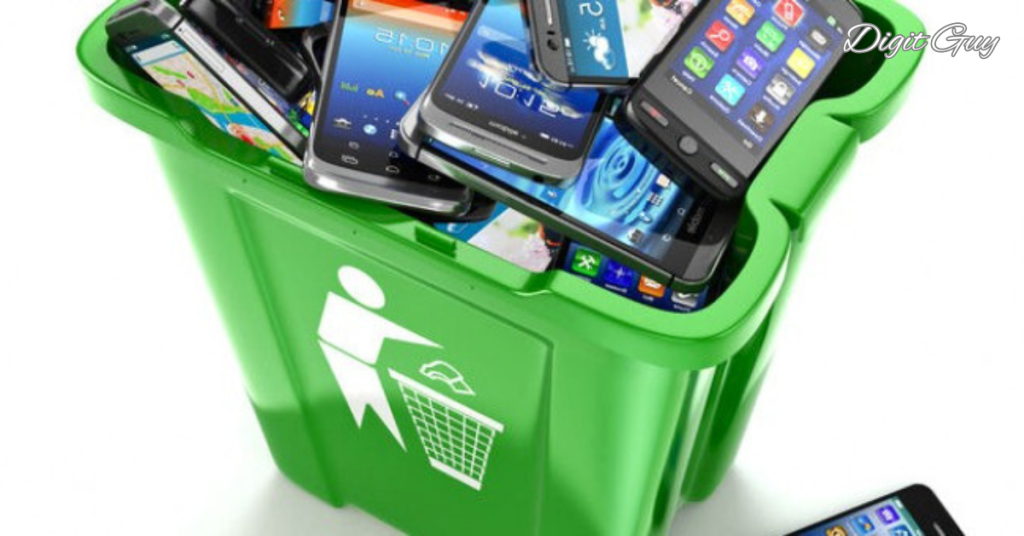Introduction
In the modern era, mobile phones have become indispensable tools, influencing various aspects of daily life. Their impact stretches beyond mere communication, permeating through social interactions, business operations, healthcare, education, and personal habits.
This article delves into the multifaceted effects of mobile phones on people’s lives, examining both the positive and negative implications.
The Evolution of Mobile Phones

The journey of mobile phones from bulky, expensive gadgets to sleek, affordable devices is a testament to technological advancement. Early mobile phones were primarily used for voice communication. However, the advent of smartphones has revolutionized the utility of these devices.
Today, mobile phones are equipped with capabilities ranging from internet access to advanced computing power, making them essential in both personal and professional spheres.
Communication and Social Interaction
Enhanced Connectivity
Mobile phones have drastically enhanced global connectivity. With features like instant messaging, video calls, and social media integration, staying in touch with family and friends has never been easier. Mobile phones enable real-time communication, bridging geographical gaps and fostering a sense of closeness even when miles apart.
Social Media Influence
The rise of social media platforms, accessible through mobile phones, has transformed how we interact and share information. These platforms allow users to share life updates, engage in discussions, and stay informed about global events. However, excessive use of social media can lead to issues such as addiction, reduced face-to-face interactions, and mental health challenges like anxiety and depression.
Impact on Business and Productivity

Business Operations
In the business realm, mobile phones have streamlined operations and enhanced productivity. They facilitate remote work, allowing employees to stay connected with their teams and manage tasks from anywhere. Mobile apps designed for project management, communication, and data analysis have become vital tools for businesses.
E-Commerce Growth
The convenience of mobile phones has spurred the growth of e-commerce. Consumers can now browse, purchase, and pay for products online with ease. Mobile payment systems and digital wallets have simplified transactions, contributing to the booming online shopping industry.
Education and Learning

Access to Information
Mobile phones have revolutionized education by providing access to a vast array of information. Students can easily find educational resources, participate in online courses, and use educational apps to enhance their learning experience. Mobile technology has also enabled distance learning, making education more accessible to people in remote areas.
Interactive Learning
The integration of mobile phones in the classroom has led to more interactive and engaging learning methods. Apps and platforms designed for educational purposes offer interactive lessons, quizzes, and real-time feedback, making learning more effective and enjoyable.
Healthcare Advancements

Telemedicine
Mobile phones have significantly impacted the healthcare industry through telemedicine. Patients can now consult with healthcare providers remotely, receive medical advice, and monitor their health conditions using various health apps. This has enhanced access to healthcare services, especially for those in rural or underserved areas.
Health Monitoring
Numerous mobile apps and wearable devices connected to phones help individuals track their fitness and health metrics. These tools promote healthier lifestyles by providing insights into physical activity, diet, and sleep patterns, encouraging users to make informed health decisions.
Personal and Social Well-being

Convenience and Efficiency
The multifunctionality of mobile phones enhances daily convenience and efficiency. From navigation to online banking, mobile phones simplify numerous tasks, saving time and effort. The availability of various apps caters to different needs, making life more manageable and organized.
Mental Health Concerns
Despite their benefits, mobile phones can also negatively impact mental health. Overuse can lead to problems such as screen addiction, sleep disturbances, and reduced attention spans. It’s crucial to maintain a balance and ensure that mobile phone usage does not interfere with personal well-being.
Economic Impact

Job Creation
The mobile phone industry has created millions of jobs worldwide, from manufacturing to app development. The demand for new technology and services continues to drive economic growth and innovation.
Digital Economy
Mobile phones have also facilitated the rise of the digital economy, enabling new business models such as ride-sharing, food delivery services, and freelance platforms. These innovations have provided more opportunities for income generation and economic participation.
Environmental Considerations

E-Waste
One significant environmental concern is the generation of electronic waste (e-waste). The rapid pace of mobile phone upgrades and disposal contributes to this growing problem. Proper recycling and sustainable practices are essential to mitigate the environmental impact of mobile phones.
Energy Consumption
Mobile phones and their supporting infrastructure consume substantial amounts of energy. The industry must focus on developing energy-efficient technologies and renewable energy sources to reduce the ecological footprint.
Conclusion
Mobile phones have unquestionably changed the way we live, work, and interact. While they offer numerous benefits that enhance connectivity, productivity, and access to information, it is essential to be mindful of their potential drawbacks. Striking a balance between utilization and moderation can help maximize the positive impacts while minimizing the negative effects.
As technology continues to evolve, so will the role of mobile phones in our lives, making it crucial to stay informed and adaptable.
Frequently Asked Question
How have mobile phones improved global communication?
Mobile phones have drastically improved global communication by enabling real-time voice calls, video calls, and instant messaging. These devices support social media platforms and various communication apps, allowing people to stay connected regardless of their geographic location. Features like push notifications and group chats further enhance the ability to communicate promptly and efficiently.
What are the potential negative effects of excessive mobile phone use?
Excessive mobile phone use can lead to several negative effects, including screen addiction, sleep disturbances, and mental health issues such as anxiety and depression. Overuse can also result in reduced attention spans and impaired social interactions, as individuals may prioritize virtual connections over face-to-face interactions.
How do mobile phones contribute to educational advancements?
Mobile phones contribute to educational advancements by providing easy access to a vast array of information and educational resources. They enable interactive learning through educational apps, online courses, and digital classrooms. Mobile technology supports distance learning, making education accessible to people in remote or underserved areas.
What role do mobile phones play in healthcare?
Mobile phones play a significant role in healthcare by facilitating telemedicine, allowing patients to consult with healthcare providers remotely. Health apps and wearable devices connected to phones help individuals monitor their fitness and health metrics, promoting healthier lifestyles. These tools improve access to healthcare services and support preventive health measures.
What are the environmental concerns associated with mobile phones?
The environmental concerns associated with mobile phones include the generation of electronic waste (e-waste) due to frequent upgrades and disposal of old devices. Additionally, the energy consumption of mobile phones and their supporting infrastructure contributes to environmental impact. Addressing these concerns involves proper recycling practices, sustainable production methods, and the development of energy-efficient technologies.
